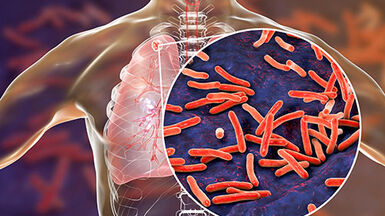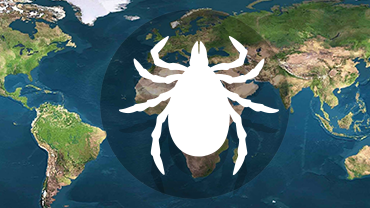Tick-borne encephalitis
Tick-borne encephalitis (TBE) is an infectious disease that affects the central nervous system and is transmitted by the bite of infected ticks. Symptoms appear, on average, within seven days and occur in two phases.
-
The first phase includes fever, tiredness, headache, muscle pain and nausea.
-
The second phase affects the nervous system, showing symptoms such as meningitis (inflammation around the brain and spinal cord) and/or encephalitis (inflammation of the brain).
Infections with no symptoms are also common. Like other tick-borne infectious diseases, the risk from TBE can be reduced by using insect repellents and protective clothing to prevent tick bites. A vaccine is available in some disease endemic areas.
Key facts
Risk for people
In areas where the disease is present, people who are active outdoors are at higher risk of infection.
The severity of the disease depends largely on the type of virus. There are three virus subtypes:
-
European subtype: its mortality rate is between 0.5% and 2%, and up to 10% of people infected suffer long-term or permanent neurological problems.
-
Far Eastern subtype: its mortality rate is up to 35% and has a higher rate of severe long-term or permanent neurological problems.
- Siberian subtype: its mortality rate is between 1% and 3% and patients tend to develop chronic or long-term disease.
How it spreads
The disease is transmitted by the bite of an infected tick or through consumption of infected unpasteurised dairy products.
No human-to-human transmission has been detected, except between pregnant mothers and the foetus.
Vaccination and treatment
There is a vaccine against the disease, but no specific antiviral treatment. Meningitis, encephalitis or meningomyelitis (inflammation of the spinal cord and enveloping membranes) require hospitalisation and supportive care depending on the severity of the syndrome.
Protective measures
Vaccination is one of the most effective means of preventing TBE.
The main prevention is to avoid tick bites, by:
-
wearing protective clothing
-
inspecting the body for ticks after outdoor activities
-
avoiding consumption of unpasteurised dairy products







